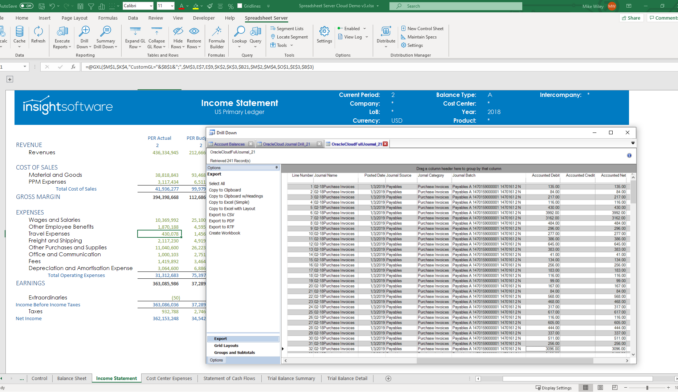How CFOs Are Helping Their Companies Navigate the COVID-19 Crisis

Businesses across the globe are facing a level of uncertainty that didn’t exist just months ago. Companies and their CEOs, leadership teams, and boards are looking to the CFO to help chart a path forward and navigate through this unprecedented time. Explore our interactive infographic to reveal valuable insights on how top CFOs are responding from our recent panel discussion, “How to Navigate Your Business Through This Uncertainty.”
Click on one of our panel speakers below to reveal their insights.
[cfo_panel_speakers]
As compared to the past crisis of 9/11 and the financial crisis of 2008, the global humanitarian and economic upheaval of COVID-19 is unprecedented. With mandatory quarantines and industries forced to close their doors to help “flatten the curve,” companies are facing levels of uncertainty that didn’t exist before.
And though the main priority is for the health and safety of all affected by COVID-19, as well as a rapid recovery for all workers and businesses, the test of a company’s ability to thrive is reflected in its reaction to a crisis.
That’s why, in response to the pandemic, companies, CEOs, leadership teams, and boards are looking to CFOs to help chart a path forward and navigate through this period of uncertainty.
Here are the three crucial steps industry-leading CFOs advise:
Assess Cash and Liquidity
The very first step is to make sure your company has enough cash to do what it needs to do over the rest of 2020. That means looking at your debt, revolvers, covenants, receivables, and payables, then putting a plan together to manage that.
“Ultimately, what we need to be doing to make sure that we can continue to support the customer at the level we can, is to manage our own financial profile in this period of question,” states David Woodworth, CFO of insightsoftware.
When a cash shortage is likely for the majority of companies, and change is already a known constant in liquidity management, optimizing how you manage data, accept and receive payments, and drive business processes will reflect directly on your bottom line.
Plan for Multiple Scenarios
There are so many unknowns regarding the depth and duration of the impact this pandemic will have on businesses. Thus, companies need to evaluate what they really think is going to happen over the rest of the year. By preparing for various levels of scenarios–starting with a moderate impact all the way to one that could be severe or catastrophic–and educating the company about those scenarios, CFOs can set themselves up to support the company’s longer-term success.
Moreover, access to reliable data will help fortify planning. Knowing whether you are going to stay on your base case or move to a middle or downsized case takes real-time analysis, which means tracking KPIs and information in a way that is different than what you may be traditionally used to. During the uncertainty of the pandemic, a company that can quickly gather accurate facts and use them to inform their response strategy will fare better. Hard data that can be used, monitored, and leveraged helps companies navigate their next move successfully.
Create Action Plans
“It’s important to have a playbook ready,” advises Brian Shaw, CFO of Discovery Education, “so you can be nimble and react quickly as facts change, because they will change quickly.”
Scenario planning is only as effective as the actions you take, so companies need to create action plans against all the various modeled scenarios.
By stress-testing multiple scenarios, you will gain insight into the possible impact the crisis could have on your financial performance, and how much longer you will be impacted. The more detailed the scenario plans are, the better insight you will have on the effects, and the less likely you will be to overlook critical aspects of what might happen in a given scenario.
It’s not likely, however, that you will implement the playbooks precisely as you have planned, but they will provide a baseline to work from. And as evident with the current state of the world, scenarios will never play out exactly as you planned. However, it is much better to go into battle prepared than not.
The difference now as compared to the past crisis is that there wasn’t a complete stoppage of all activity. Revenue declined, but you could model a time when you thought it would start to pick up. Because we are dealing with a health issue, there are a lot more uncertainties, and it is much harder to predict when things will turn around.
Despite the stoppage, however, Gary Michel of Genstar Capital notes the way companies are quickly adapting and becoming virtual. “It is a massive case test in disaster recovery planning, and I think, for the most part, almost every company has passed it with flying colors.”
Woodworth agrees that the level of agility that’s required to manage through this will be hard to let go of because there is so much that companies, CFOs, and leadership teams will learn from this process to help them come out of it stronger than when you started.
Watch our CFO panel, How to Navigate Your Business Through This Uncertainty, and learn:
- What should CFOs be doing to maximize their effectiveness and influence?
- How do the impacts of COVID-19 compare to prior crises?
- How do you put scenario models into action?
To access more information about how to maintain business continuity during the COVID-19 crisis, visit our COVID-19 Resource Center.







